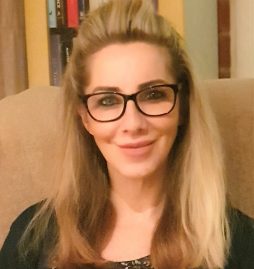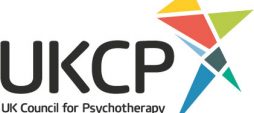There is a purpose to all behaviour and feelings, we just need to look a little deeper to find it
Gabor Mate
Welcome, and thank you for visiting my website.
When life feels difficult then hope for any change can seem like a far off dream. Things may become unbearable, and we can feel lost, lonely, depressed, anxious, and lack a sense of direction or purpose. It can be incredibly difficult to deal with such troubling feelings on your own, and it is sometimes beyond the control of the individual to address those issues without professional help.
Therapy can help you live your life with all its ups and the downs, achieving a stronger sense of who you are, becoming more resilient, and finding new ways of understanding your relational experiences. It offers you a time and place that belongs solely to you, where you can be seen and heard.
Making the decision to see a therapist can be quite daunting and it's not unusual to feel nervous - but it can be a positive one. Please read on to find out more about how I could help you.
What is psychotherapy?
Psychotherapy differs to counselling, put simply, counsellors work at a more immediate level generally focusing on a current issue that is affecting the client, offering guidance and support. Psychotherapy isn’t about giving you solutions or advice, but both thinking and working at a deeper level focusing on long-term solution for reoccurring problems.
It is a healing process that necessitates participation and investment from the client and therapist alike. It is a relationship where we explore your feelings, thoughts, and actions. Rather than remaining disconnected from your emotions you can make sense of how your present struggles have been influenced by your past experiences, including your very earliest ones & the meaning these hold for you.
How psychotherapy can help
Helping to improve relationships
Relationships can give us the greatest joys and bring us the utmost pain in our lives. It may be that keeping others at a distance or people-pleasing has felt the only way to live your life and to prevent yourself from being hurt. Your inner belief may be that ‘people let you down’ and this has become your lived experience. You may become easily upset and wounded by seemingly small slights, criticisms, or rejections by others. These wounding events may be so subtle that their impact may seem puzzling.The trouble is these ways of being can leave you feeling lonely, depressed, and disconnected.
I will help you explore your relational patterns, offering hope, warmth and human connection, where trust, respect and being seen and heard can be experienced. Together we can test out new ways of being and relating that do not have to replicate the past, helping to improve relationships in all areas of your life.
Make lasting changes
We are often looking for a quick fix to most of our problems. Yet, these difficulties are often deeper rooted. Psychotherapy does not offer a magic formula, rather a way to unravel and heal our tangled wounds, a place where suffering is heard, even when there are no words. Somewhere you can grow and learn to thrive and make lasting changes.
Make better, healthier new choices
Working together I can help you gain greater insight into the difficulties you are facing, help you understand why you act or react to them the way you do, and see how you can start to make better, heathier choices moving forward. Making small changes to unhealthy patterns, and being able to cope with feelings of sadness, fear, and pain can bring life-altering results.
What issues can psychotherapy help with?
People come to me for help a wide range of issues. Here are a few of the difficulties that can be supported through psychotherapy:
Feeling helpless or hopeless
Chronic unexplained sadness
Anxiety and panic
A deep sense of emptiness
Emotional or physical numbness
Feeling 'different' from others
Low self esteem/self worth
Feeling like you can't cope
Feelings of depression or grief
Feeling lost and alone
Inability to relax
No sense of belonging
Unable to trust others
Sudden outbursts of rage
A feeling of going 'crazy'
Unexplained physical symptoms
Difficulty making or sustaining relationships
Historic abuse
You may have learnt creative ways to survive and cope the best you can. For some this may be through drinking too much alcohol, taking drugs, both recreational and pharmacological, eating too much or not enough, and or self-harm. More simply put, we find a way to numb the unspoken pain.
There is a purpose to all behaviour and feelings. We just need to look a little deeper to find it
Gabor Mate
My approach
I have a warm, open and down-to-earth approach to therapy, and I draw from my varied experience and training to find the best way to support you. My approach is integrative, this means I’m not fixed in one perspective; I see human experience as being more unique and mysterious than one theory can contain.
I work on the assumption that the body and mind are intrinsically connected, therefore should be treated as such in the context of therapeutic work. My overarching approach is grounded in the fields of developmental and relational psychology, attachment theory, neurophysiology, somatic psychology and perinatal studies.
At the heart of my therapeutic approach is the relationship between you as the client, and me as your therapist. It is a place to test out new ways of being and relating that do not have to replicate the past, helping to improve relationships in all areas of your life.
Body orientated approach
The traumatised body
Our bodies tell our autobiography without words, reflecting a person’s current state and previous life history. I believe the body has a way of showing us what is going on inside, even when there are no words. Traumatic or difficult experiences impact the body, as well as the mind, in a profound way.
You may have a body that is in a perpetual state of tension; a breath that feels blocked or shallow; a body that hurts or is unable to relax but does not know why?
How I work with the body
For recurring problems to be resolved, mental insight often is not enough. The hurt that we suffer can cause great pain, the body remembers, yet sometimes our minds do not. Working with talking therapy as well as body-oriented techniques can help to make better sense of your problems, paving the way for long lasting change.
The sessions may involve movement; I may bring attention to physically felt sensation in the body, the breath, gesture, and impulses to move in a particular way, which may help identify the underlying conflicts causing stress, depression, and anxiety, which are not fully conscious.
Therapy is a journey, I hope you can travel along its path to arrive at a more peaceful destination.
Qualifications and experience
Qualifications
MSc Integrative Psychotherapy. This involved 4 years of in-depth study, clinical work and research.
Post Graduate Diploma Integrative Psychotherapy from the Sherwood Psychotherapy Training Institute in Nottingham.
Certificate Body Psychotherapy. Sherwood Psychotherapy Training Institute in Nottingham.
Level 1 Dyadic Developmental Psychotherapy.
BSc Complementary Therapy and Science (2013). Staffordshire University.
Experience
I have worked in a number of organisations, offering face to face therapy to both adults and young people. I have fifteen years’ experience working therapeutically with individuals with mental health problems and complex trauma histories, including ten years working in NHS mental health hospitals.
Specialist interests
I have a specialist interest and experience in working with complex trauma; ADHD; addiction; medically unexplained symptoms and relationship breakdown between parent and child.
Professional memberships
I am a fully accredited clinical member of the United Kingdom Council for Psychotherapy (UKCP). I abide by the UKCP and Sherwood Psychotherapy Training Institute code of ethics and professional practice.
Fees
£55 per 50 minute session payable via bank transfer, or cash.
I require at least 24 hours notice of cancellation, if not given, the full fee will be payable
Frequency
I see individuals on a weekly basis. The number of sessions will be unique to each individual dependent on the complexity of the problems you face and the solutions you seek.
Get in touch
I provide face to face psychotherapy from my therapy room in Penkridge, Staffordshire.
Feel free to contact me if you have any questions about how psychotherapy works, or to arrange an appointment. This is an opportunity to discuss the issues which have motivated you to look for a therapist.
Initial assessment appointments are a little different to regular sessions. They are a chance for us to meet each other and to see if we are a good fit to carry on working together. Since the process has too many intangibles, we often may agree to an initial trial of a limited number of sessions (short-term, theme-focused) and then reassess where we are.
You can call me on 07877 188 179. If I am unable to answer your call, please leave a message or send a text. You can contact me by email if you feel more comfortable with this. I aim to respond to your enquiry within 24 hours on weekdays. I very much look forward to hearing from you.
©2021 Jessica Charles
powered by WebHealer

